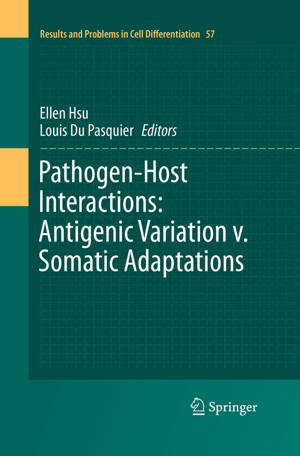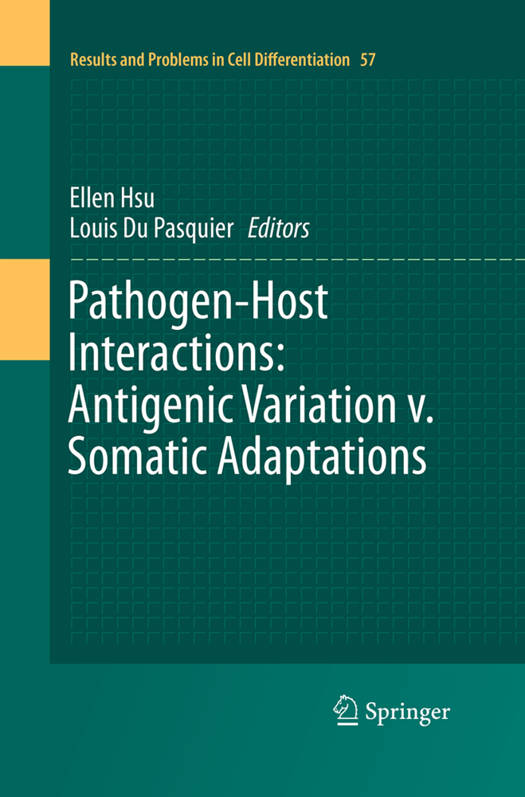
- Afhalen na 1 uur in een winkel met voorraad
- Gratis thuislevering in België vanaf € 30
- Ruim aanbod met 7 miljoen producten
- Afhalen na 1 uur in een winkel met voorraad
- Gratis thuislevering in België vanaf € 30
- Ruim aanbod met 7 miljoen producten
Zoeken
Pathogen-Host Interactions: Antigenic Variation V. Somatic Adaptations
€ 160,45
+ 320 punten
Omschrijving
This volume provides in-depth reviews of model systems that exemplify the arms race in host-pathogen interactions. Somatic adaptations are responsible for the individualization of biological responses to the environment, and the continual struggle between host immune systems and invading pathogens has given rise to corresponding processes that produce molecular variation. Whether in mollusks or human beings, various host somatic mechanisms have evolved independently, providing responses to counter rapidly-changing pathogens. The pathways they utilize can include non-heritable changes involving RNA and post-translational modifications, or changes that produce somatic DNA recombination and mutation. For infectious organisms such as protozoans and flatworms, antigenic variation is central to their survival strategy. Evolving the ability to evade the host immune system not only increases their chances of survival but is also necessary for successful re-infection within the host population.
Specificaties
Betrokkenen
- Uitgeverij:
Inhoud
- Aantal bladzijden:
- 336
- Taal:
- Engels
- Reeks:
- Reeksnummer:
- nr. 57
Eigenschappen
- Productcode (EAN):
- 9783319371825
- Verschijningsdatum:
- 23/08/2016
- Uitvoering:
- Paperback
- Formaat:
- Trade paperback (VS)
- Afmetingen:
- 156 mm x 234 mm
- Gewicht:
- 485 g

Alleen bij Standaard Boekhandel
+ 320 punten op je klantenkaart van Standaard Boekhandel
Beoordelingen
We publiceren alleen reviews die voldoen aan de voorwaarden voor reviews. Bekijk onze voorwaarden voor reviews.







